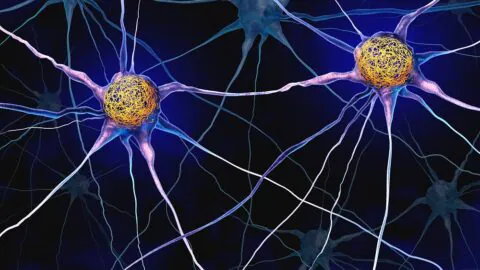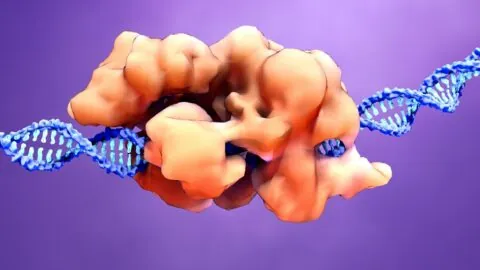January 30, 2026
Using an ingenious CRISPR-based screening technique, scientists have found a protein that tags tau for degradation and is more strongly expressed in tau-resilient neurons [1]. Some neurons are more equal than others The accumulation of tau protein fibrils in neurons is a hallmark of Alzheimer’s and several other diseases [2]. Scientists have long noticed that...
November 11, 2025
A new Phase 1 trial produced encouraging safety and efficacy results for a CRISPR-based gene therapy that silences a gene important for lipid regulation. This therapy might increase adherence and reduce side effects [1]. Addressing the adherence problem High levels of LDL cholesterol (LDL-C) and triglycerides are a major risk factor for cardiovascular disease and...
June 12, 2025
Researchers publishing in Cell Reports Medicine have taken a look at what causes CRISPR/Cas9 gene-editing technology to drive cells senescent and investigated a potential method of preventing it. Breaking and repairing DNA Genetic engineering of living cells through CRISPR/Cas9 technology requires three things to occur. The DNA must be disconnected in a double-strand break, new...
June 13, 2024
Researchers publishing in Cell Stem Cell have demonstrated that genetically diseased liver cells can be taken from human beings, altered in the laboratory, and used to regrow the livers of model mice. Recreating an entire organ has its own difficulties These researchers begin their paper by discussing existing cellular therapies for multiple tissues, such as...
July 17, 2023
Researchers publishing in Cell Stem Cell have announced a new method of accurately and rapidly cloning genetically engineered stem cells. CRISPR is still imperfect While the accuracy of genetic modification through the well-known CRISPR/Cas9 system continues to improve, the technology remains imperfect. Small mistakes were initially reported [1], and later researchers found that under certain...
December 12, 2022
A team of researchers from multiple Japanese universities has found a way to genetically enhance T cells against solid tumors, as published today in Nature Biomedical Engineering. A focus on signals This highly in-depth paper begins with a discussion of signaling in the response of chimeric antigen receptor (CAR) T cells, as good signals are...






